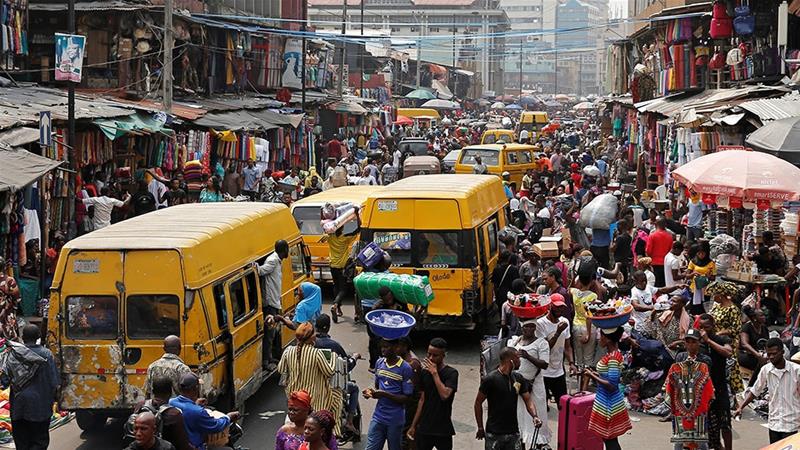BY SUNNY CHUBA NWACHUKWU.
“Corruption is about not doing the right thing” (it is not just about giving or taking money), said the late professor Dora Akunyili, former director general of National Agency for Food and Drug Administration and Control (NAFDAC). Former Governor Peter Obi of Anambra State speaking recently at the RHOGIC-Men of Valour conference corroborated this fact about corruption when he said that, after about sixty years, Nigeria cannot generate four thousand megawatts (4,000 MW) of electricity, whereas Tafawa Balewa approached the World Bank in September 1964 for a loan of eighty two million dollars ($82,000,000), to build the Kainji Dam, to be able to generate over one thousand Megawatts (˃1,000 MW) of electricity. Obi went further and identified the cause of this (among other reasons) as not investing in education for human capital development (training people in education); which has resulted in no production in the economy. In effect, Nigeria, over the years, has been wasting unemployed human resources (as trained/skilled or professional labour within the labour portfolio of the entire population) that are readily available in the labour market that could have been effectively utilised for transformation of the nation’s capital stock (both natural resources and man-made resources) to increased national output (i.e. goods and services) or gross domestic product, (GDP).

Quite unlike Rwanda, the reason Nigeria is not working is because of the corrupt practices by those in charge that never executed the tasks and duties of the state patriotically. They rather operate and discharge their individual official assignments with a wrong moral mindset that is based on self aggrandisement, armed with personal inordinate ambition to amass ill-gotten wealth at the expense of the economic growth and development of the sovereign state. As at 1984, Rwanda was visibly observed by her physical aesthetics as a proverbial dungeon; but for the emergence of the action and forward-looking President Paul Kagame, who drastically turned things around and completely changed the tide of national development within twenty years of his governance.
Paul Kagame practically put Nelson Mandela’s quote into action (by playing out its right perspective) that, “Poverty is not an accident, like slavery and apartheid but, man-made, and can be removed by actions of human beings.” Kagame’s sterling action in leadership clearly betrays the picture of Nigeria’s economy in its degrading state, a stark reality that has made the nation remain the global byword for underachievement, having been ascribed the title of the “world’s poverty capital” based on her position at the bottom rung in a measure of national outputs and international comparisons, based on Purchasing Power Parity (PPP) technique across countries of the world. Nigeria is a country wallowing in abject poverty, yet it is in the midst of rich and abundant natural resources. The country’s poverty is the result of its poor productivity when its GDP rate is weighed against its population. This poor and appalling economic situation is the result of an acquired social malaise, of the inaction of Nigeria’s endemic corrupt leadership. This has eaten deep into the fabrics of national governance and is exercised by some leaders who take critical policy decisions with impunity; and this has held the economy down. A reversal of this ugly situation can only come about if the economy is turned around to become self-sufficient, which would be achieved through a well established, effectively employed capital stock and labour force.
From the angle of contemporary global trade, current realities in commercial and economic activities along the supply value chain in most economic sectors internationally, are facing imminent danger – in energy shortage, food scarcity with a feared future near food insecurity; and the worrisome and devastating impact of the climate change, due to global warming, which is currently being experienced in some parts of the world with its devastating effect through flooding, heatwaves in many western countries; and others. These affairs and developments did not exempt the Nigerian economy but, it has created an opportunity to monitor the events and actions of the country’s leadership on how to adequately respond to such economic challenges facing mankind; and the possible strategic long term plan the leaders have to stem the impact because, already inflation is on the increase, globally.
One thing Nigeria must do to cut down the spiralling inflation is to strategically engage in production of the goods and provision of services in the critical economic sectors identified earlier. Such action will counter the trend of imported inflation (especially, in the agricultural sector for food production); and in Nigeria’s oil industry, put a total stop to the exportation of labour, by locally refining petroleum products; that should counter the trend of massive exports of crude oil to foreign refineries.
What Nigeria needs to do differently is to extensively engage in renewable energy development and generation, (with a plan to export the excess locally produced). The country also needs to reverse the tide of massive upstream operations in crude exports (especially with the decreasing interest in fossil fuels due to global warming; and inwardly focus more on infrastructural development for the oil and gas value chain in the downstream utilisation of the extracted crude for local refining value addition (backward integration), to improve high quality foreign exchange earnings for the economy, through exports of finished petroleum products, a sustainable self-sufficient energy economy (applying import substitution strategy as a policy on refined products). Ultimately, and ultimately, to qualify as a net exporter of agricultural products and finished foods, achieved through strongly established energy-compliant agribusinesses, in all parts of the country, with a strategy that considers comparative advantages in all the specific cash crops farming on their respective value chains.)









